20+ SAMPLE Sales Budget
-
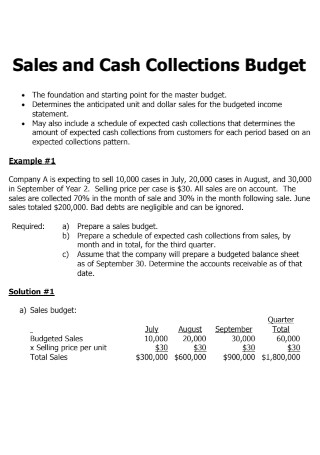
Sales and Cash Collections Budget
download now -
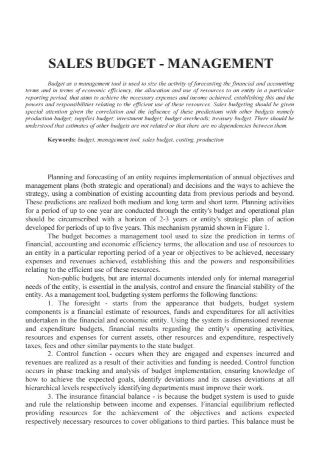
Sales Budget Management
download now -
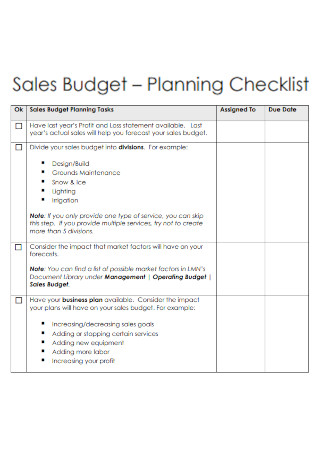
Sales Budget Planning Checklist
download now -
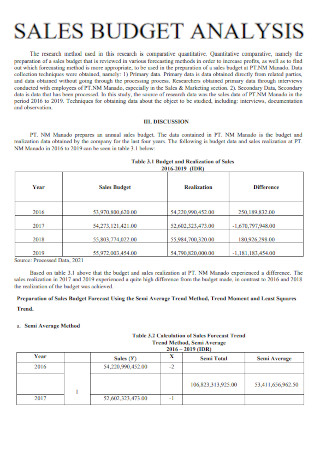
Sales Budget Analysis
download now -
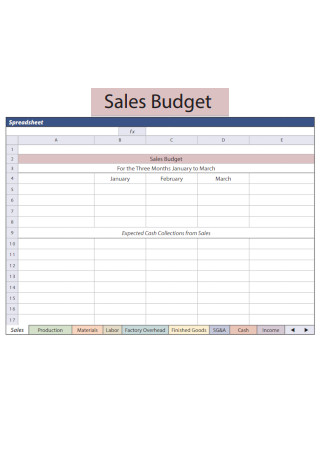
Sales Budget Spreadsheet
download now -
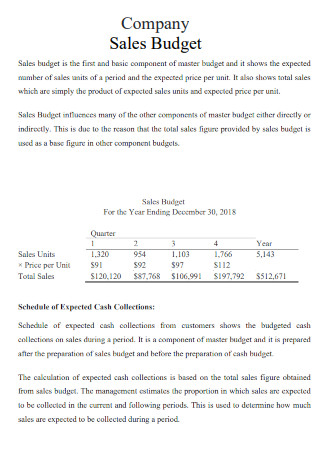
Company Sales Budget
download now -
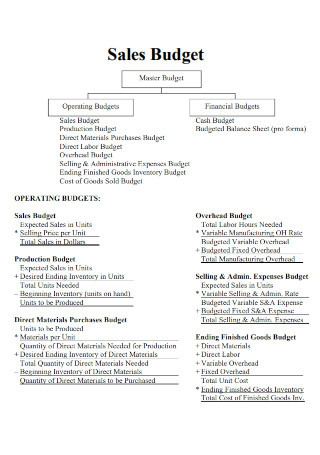
Sales Master Budget
download now -
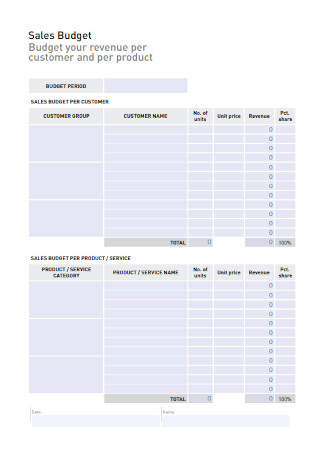
Customer Sales Budget
download now -
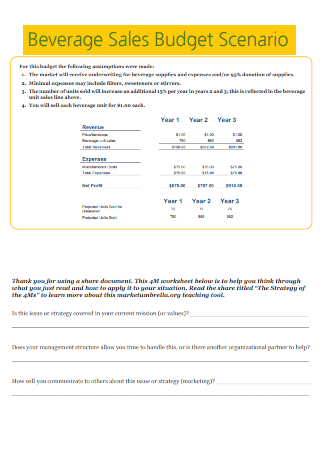
Beverage Sales Budget Scenario
download now -
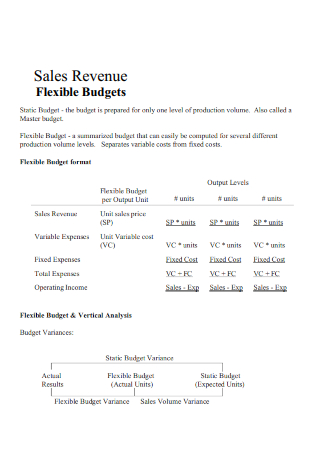
Sales Revenue Flexible Budget
download now -
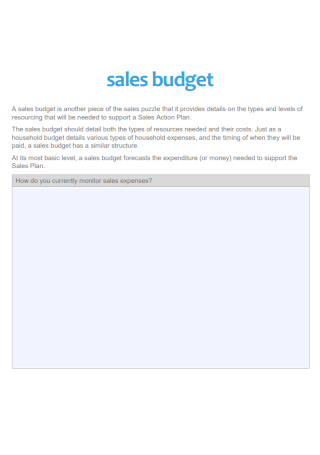
Sample Sales Budget
download now -
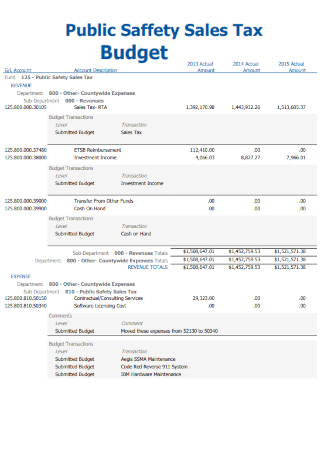
Public Safety Sales Tax Budget
download now -
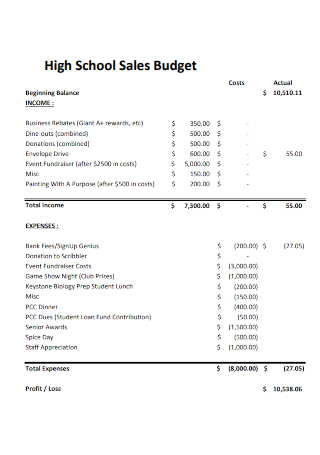
High School Sales Budget
download now -
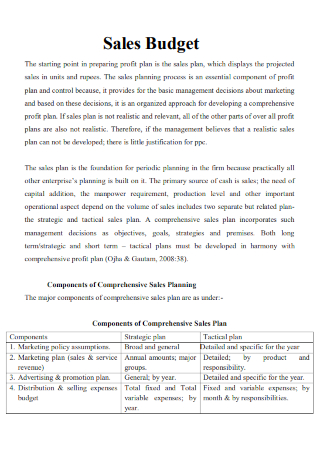
Basic Sales Budget
download now -
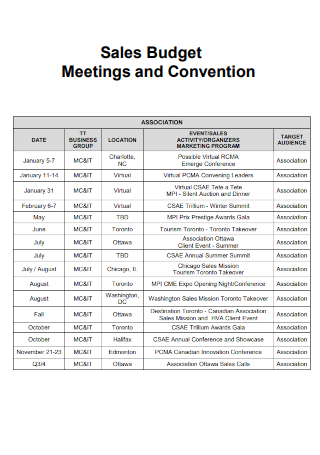
Meeting and Convention Sales Budget
download now -
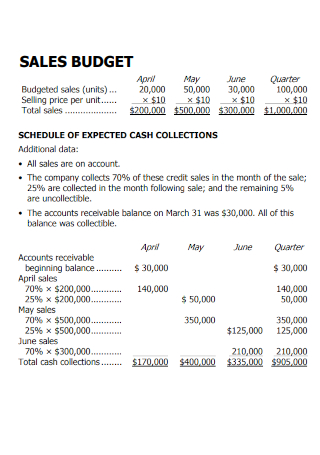
Printable Sales Budget
download now -
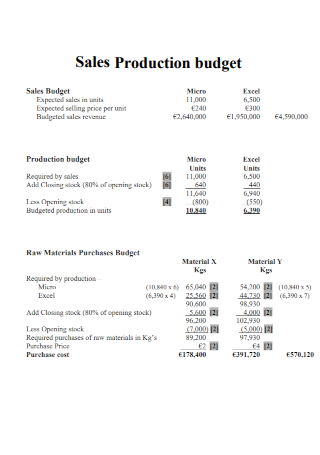
Sales Production Budget
download now -
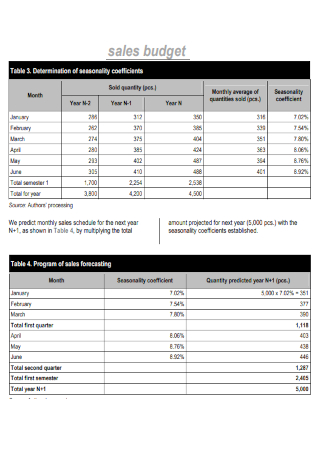
Monthly Sales Budget
download now -
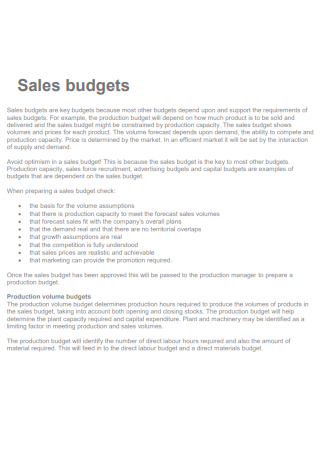
Editable Sales Budget
download now -
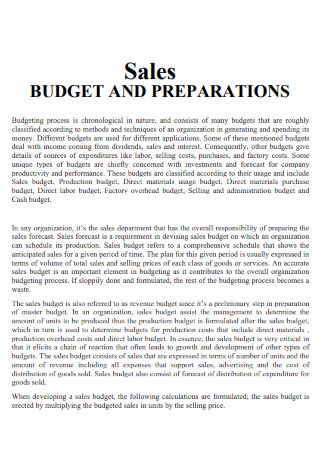
Sales Budget Preparation
download now -
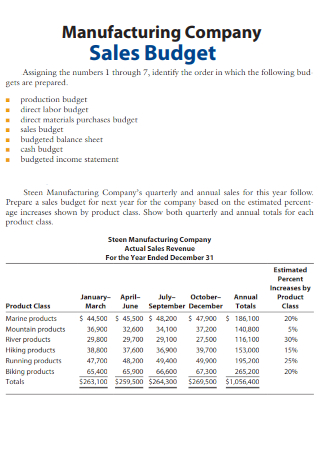
Manufacturing Company Sales Budget
download now
FREE Sales Budget s to Download
20+ SAMPLE Sales Budget
What Is a Sales Budget?
What Is the Purpose of a Sales Budget?
Factors Influencing the Sales Budget
Advantages of Budgets
Disadvantages of Budgets
How to Write a Sales Budget
FAQs
Why is a sales budget important?
What are the types of sales budgets?
What is the difference between sales budget and forecast?
What Is a Sales Budget?
A sales budget is the Financial projections of a company’s overall revenue over a certain period. It focuses on two factors: the number of products sold and the price at which they are sold, as well as forecasting the company’s performance. It serves as the foundation for preparing the company’s income statement. The sales expense budget is created by the management based on the company’s business environment, overall economic condition, market competitive intensity, production capacity, available money, and so on. You will need to make use of the sales budget templated provided in this article especially if you are unfamiliar with the process.
What Is the Purpose of a Sales Budget?
A sales budget is a Financial Plan that outlines how resources will be allocated to meet sales targets. A sales budget’s main purpose is to plan for maximum resource utilization and forecast sales. The data needed to create a sales budget encompasses a wide array of sources. You will find that having a sales budget is more beneficial so that you can keep track of your company’s financial performance as well as be wary when you overspend on a certain project.
Factors Influencing the Sales Budget
Various factors affect the way the company proposes and comes up with the sales budget. This is why this article has curated a list to help you be more knowledgeable on the factors mentioned below. Regardless if you are new and are used to the industry, these sets of factors could act as a reminder to help you out.
Advantages of Budgets
Budgets are beneficial to both the company, its managers, and other employees. You will most likely be able to observe that including a budget plan, regardless of the industry you are in, will be advantageous since you can plan out the necessary financial spending and how much will be allocated for various factors and uses.
Disadvantages of Budgets
Though there are numerous advantages to having a budget and financial accounting, there are also some drawbacks, which are enumerated below. Give this curated list a read so you will be aware of what sets budgets as non-beneficial for your company and uniquely, spin them around so they can accommodate you better.
How to Write a Sales Budget
Many other crucial business decisions affecting your sales force and your company as a whole are influenced by a successful sales budget. Everything that includes fine-tuning sales processes to figuring out how many new sales representatives to employ, as well as everything in between. The sales budget, as a whole, serves as a road map for your company and its sales staff for the balance of the month, quarter, and year. The more precise your projected sales budget, the more successfully you can manage your organization. Before you proceed with the preparation of the sales budget, use the article’s available sales budget format.
-
1. Choose a Time Frame
Decide on the time frame for your sales budget. On a Monthly, quarterly, or annual basis, this might be done. Companies most commonly utilize an annual evaluation, although you might also look at a shorter time frame. It is important to keep in mind the time frame as you draft out the budget because it will help you and the company strategizes on the length or duration of the specific budget you will be setting.
-
2. Compile a List of Sale Prices
To calculate your sales budget, you will need to compile a list of sales prices. Find out how much your various items or services will cost. Consider any prices your organization may employ in the future as a result of factors like sales or rising demand. Tabulating the list of sale prices will help you to keep track of the pricing as well as better organize them.
-
3. Collect Sales Data
To figure out how many goods you might sell, look up sales statistics from your organization during a specific period. Consider looking at statistics from the previous year’s winter quarter if you’re looking at your winter quarter. You may estimate how many units you will sell in the future by looking at prior sales. It’s also a good idea to think about overall industry sales, the company’s market share, and the industry share’s growth.
-
4. Study Market Trends
Keep up with current Market developments. Conducting research includes looking at market movements and preferences for various trends. Knowing the current situation of the market might assist you in determining whether your product or service will be relevant within the estimated time. A proper projection can only be created after a thorough examination of current market trends, the economic environment, seasonal swings in demand, evolving competition, new products, and changes in customer preferences, among other factors.
-
5. Communicate with Customers
Consider speaking with your customers to find out how much they plan to spend throughout the time you have chosen. Examining the spending patterns of your long-term consumers is especially beneficial. Consider that some clients may make purchases at a specific time of year, which may have an impact on specific quarters.
FAQs
Why is a sales budget important?
Sales budgets are essential for managing to spend and setting sales targets, and no department wants to go over its given budget. Even if it’s just a 1% boost in sales productivity, clear, specific targets motivate teams to work together to achieve success. It is critical for evaluating the sales team’s effectiveness. The pillars on which all other departments are built are sales data. The management can constantly compare the actual and budgeted sales Data. As a result, they can monitor for budget deviations in real-time and take action to close the difference.
What are the types of sales budgets?
Companies often utilize four sorts of budgets: incremental, activity-based, value proposition, and zero-based. Each one of these four budgeting methods and cost allocation has its own set of advantages and disadvantages, which will be discussed more in this article. You must be aware of the different types of sales budgets so that you can determine and use the best type for your respective company.
What is the difference between sales budget and forecast?
A sales budget and a sales forecast are two instruments that have a lot in common. They are so similar that they are commonly mistaken for one another. Sales predictions are more commonly organized for shorter periods, such as per week or month, which is a more particular difference between the two. A sales budget, on the other hand, will consider long-term, annual figures. A sales forecast also accounts for seasonal sales trends considerably more than an annual or even quarterly sales budget because it is split down into smaller periods.
To produce an efficient and successful sales budget and production budget, keep the things you have learned as you read through this article in mind. Even though the purpose and intended use remain the same, what sets your company apart is the unique qualities entailed as you run your business.
